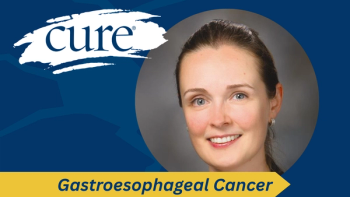
Advice to the Newly Diagnosed: Get a Second Opinion
Don’t be worried to get a second opinion — it could save your life.
After being misdiagnosed with stage 4 estrogen receptor-positive, HER2-positive metastatic breast cancer in 2011, wellness advocate and cancer thriver Stephanie Seban knows firsthand the benefits of getting a second opinion after a cancer diagnosis.
Initial treatment stabilized her disease for four years, but when an aggressive, fast-growing mass was discovered in year five, Seban’s doctors told her there was nothing more they could do. Because Seban “wasn’t ready to just go home and die,” she sought a second opinion and discovered that she was, in fact, HER2-negative.
At the 37th Annual Miami Breast Cancer Conference® and CURE® Educated Patient Breast Cancer Summit, Seban discussed how getting a second opinion saved her life and offered advice to those who may be dealing with a new diagnosis of their own.
Transcription
For the newly diagnosed, my greatest piece of advice is to always get a second opinion, from day one. Sometimes, when you’re younger, and you’ve never really had much experience or family history, or you don’t know much about cancer. You’re thrust into this world, sink or swim, learning a whole language about cancer and different diagnoses. You’re learning that breast cancer is not just one type of breast cancer.
So, as frightened as you are, and as overwhelmed as you are, it’s always best to get two opinions from the beginning. Maybe the first appointment feels right, but always get the second one to know that the first one felt right.
And sometimes, two oncologists will have two drastically different approaches, so it has to feel right and resonate with you. And if I could take it all back and do it all over again, that’s what I would have done.



